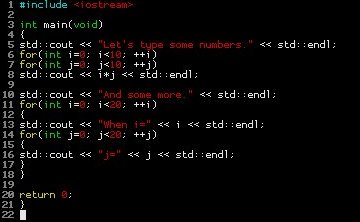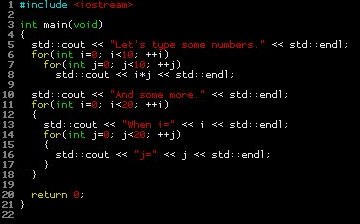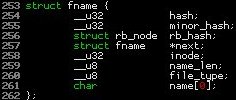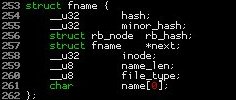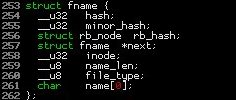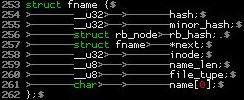After claiming that most programmers just can’t
program, and actually
addressing most of the problems to the lack of passion of people who decide to
start a career as a programmer, I would also like to express my point of view
on a tightly related subject: what can be done to improve the situation?
The problem that I was trying to bring up in the spotlights, is that a lot of
people just start (or wish to start) a career in the IT for no particular
reasons. Those are the ones who don’t love and don’t loathe programming, and
they just see it as something that pays their bills. Well, maybe the first
question that I should address, actually is: why is this bad? Sure there
are so many jobs which don’t require passion at all, and people just do them
because a job is just a job, and don’t really care. In my opinion, being a
programmer is different.
There are many people, especially the ones who sit high in the hierarchy of a
company, who see programmers as the last and least important step of a ladder.
They often think that programming is quite of an automated and repetitive task,
and it could basically be done by anyone, with just a little training.
Unsurprisingly, this seems to be the opinion of most common people, who
ignore what programming really is. I wouldn’t want to discriminate among
different types of programming, or different programming languages, but it’s
obvious to me that programming, to some extent, actually can become an
automated an repetitive task. That’s quite the minority of cases, though, so I
will simply ignore them, and focus on the rest.
As anybody who’s a programmer knows, programming is a highly creative task,
that requires good imagination and great problem solving skills. Everybody else
might just see it as “typing stuff on a computer”, and believe me, there’s a
whole lot of educated people who think that programming is a monkey matter.
Hence the term “code monkey”. This term has historically been abused a lot,
by even programmers themselves. A “code monkey” is said to perform a
programming task so easy that even a monkey could do, as the image suggests.
There are two truths about this phenomenon: first of all, luckily, programming
requires far more skills than it’s usually believed; secondly, and sadly, the
majority of people just ignore it.
The problem with lousy programmer is kind of similar to a medal: it’s double
faced. You could actually call it a dog trying to bite its own tail: as
programming is believed to be an easier and easier task, more programmers are
needed; as more and more programmers are needed, more people will jump on the
field; as more and more people try to become programmers, the lousier the
average quality of programmers gets. Unfortunately, what average
non-programming people miss to understand is that although it doesn’t really
take a hard training to become a lousy programmer, it takes a damn hard one
to excel in the art of programming. Moreover, most people just lack the
innate logic mechanisms that make you a potential programmers. Such
mechanisms are developed in your mind when you’re very young, and it’s quite
rare to develop them after your twenty-somethings. With this, though, I’m not
denying that there are a lot of people who actually do develop those mechanisms
in advanced age. I’m just trying to think of the big numbers, here.
So, getting to the point, what went wrong and how can it be fixed? I don’t
think it would be wise to say that what’s wrong is that there’s too much need
of programmers, ergo the average quality was inevitably doomed to lower and
lower over the time. I rather think that the problem is with education. Of
course I can’t speak for all the universities and colleges in the world, but I
can at least try and speak for the one I’ve known personally, or through people
who have studied there. It seems that, as more and more people apply to
Computer Science or related departments, the easier it gets to get in (sorry
for the pun), and to get through with it, i.e. to graduate.
I know this happens most likely in any other faculties, but seeing that there
are people who have been studying CS for three or more years, and still can’t
get through the most simple concepts, just doesn’t seem right to me. Yesterday
night, I was sitting in an IRC channel about the C programming language, when
somebody joined in and asked:
“I just started studying structures in C, and I don’t get them. Can anyone
explain to me what’s the use for them?”
Ok, I don’t really think there’s anything wrong in not getting the point of C
structures right away, but after a little chatting, it turned out that the guy
was in his second year of Computer Science, and this was the second time he
took the C class. Still that wouldn’t be a reason of hatred, of course (not
that I have any hatred), but after another small while it turned out that the
guy didn’t like programming at all, but he just got himself into it because he
applied to CS since he liked to “fiddle around with computers”.
What’s really needed, in my opinion, is a harder and less tolerant educational
system, that would be more selective, rather than pushing everyone forward.
People that find out to be really not made for it, should just give up and move
their focus on something less.
I’m actually very well aware that a lot of programming work, nowadays, is not
really rocket science, still this doesn’t mean that it should be done by
completely unqualified people. If what Jeff Atwood says in his post about
programmers who can’t
program is true, and
that is that 199 out of
200 applicants (not
programmers, applicants) can’t write any code whatsoever, than it obviously
means that something is wrong. Looking at the numbers provided by Joel
Spolsky, it looks like a
lot of these basically incompetent people are going to end up working on an
actual programming job, and maybe their code will end up on The Daily
WTF
(Paula,
are you there?).
Unfortunately, the education is not the only one to blame. No matter how much
education will improve, there will always be unqualified people who are
going to apply for jobs that require a lot of skills, and in the end the odds
will help them, so they’ll manage to get a job as a programmer. Is it so bad,
considering that it’s most likely not going to be any critical position, and
the only ones that will be damaged will be the owners of the company that hired
them? Well, the point is that this is not true. There’s someone else who gets
damaged, in this scenario. I’m talking about the community out there, the good
programmers, who find themselves competing with newbies who’re happy to earn
peanuts. The salaries keep going down, and customers are not able to
distinguish a good job from a good one.
In a comment on the previous post of
mine about this
subject, Hoowie Goodell really gets a great
point with this paragraph:
“There has been a great effort to industrialize programming, too. Again,
there are many good features, and it’s a field I’m interested in. Building a
large program requires a structured approach. Language design, libraries,
programming frameworks and IDEs can and should incorporate as much existing
human knowledge as possible: computer science, domain knowledge, solid
pre-written code and human interface principles. (Check out Thomas Greene’s
“Cognitive Dimensions of Notations” for some of the latter: I think of how
programming tools fail to use them on a daily basis!)”
In a way, this suggests that the whole system is not ready yet, as it’s indeed
years and years behind several other engineering fields, and that’s a good
reason, probably, to explain why it’s so easy to fail at being a good
programmer. Let’s just try to get some insightful inspection points, in order
to build better generation of programmers:
-
Better education. The whole higher educational system should be
improved in several way. Worldwide. Nowadays, it looks to me that in many
countries graduation is just a direct consequence of applying to an
University. Unfortunately, this kind of problem must be addressed on a
country-basis, to properly identify the specific issues, but still the
options that I would like to consider are worth mentioning. It all comes
down to a single point: there should be less tolerance towards people
that don’t learn. The thresholds for succeeding in a course should be
raised to greater difficulty. Current models of testing should be
seriously revised, so to ensure that students that really didn’t
understand the subject are not going to make it.
-
Better tools. Are we trying to make programming just like a factory
chain or are we not? If we are, as it seems nowadays, then the tools are
not ready yet to second our intentions. Programming is too error prone
and too time-consuming.
-
Better process. Software process that doesn’t conform to some
standards, say ISO-9000 (sorry if it’s inappropriate, I’m not an expert
on this kind of standards), shouldn’t be allowed to sell. Quality
insurance committees should be taken more seriously as being part of the
process. This might be against all principles of liberalism, I know, as
bad software, you may say, will not sell anyway. I know many bad software
that did sell well, for greatly different reasons than its (non) good quality.
-
Better judgment when hiring. I’m not going to try to teach you how to
run your company, nor how to hire your crew. But sometimes really crazy
thing happen (again, is
Paula
around?). A very interesting post by Joel
Spolsky (I’m sorry, I can’t find it
anymore: does anybody know the link?) talks about only hiring “A”-people,
where “A” means top class. If you’re ever hiring a “B”-person, he’s quite
likely to hire a “C”-person, someday. After that, it’s chaos. I recommend
anyone not to lower their canons of perfections. Here’s another great
article by
Joel,
about hiring good developers, I recommend it.
Concluding, improving the quality of programmers seems really to be a tough
issue, and the whole thing depends on so many factors that tracking a precise
problem is impossible. Cultural and technical difficulties arise all the time,
and getting clues is hard. I’ve tried to get around the problem and give some
insightful opinions: what do you people think?







